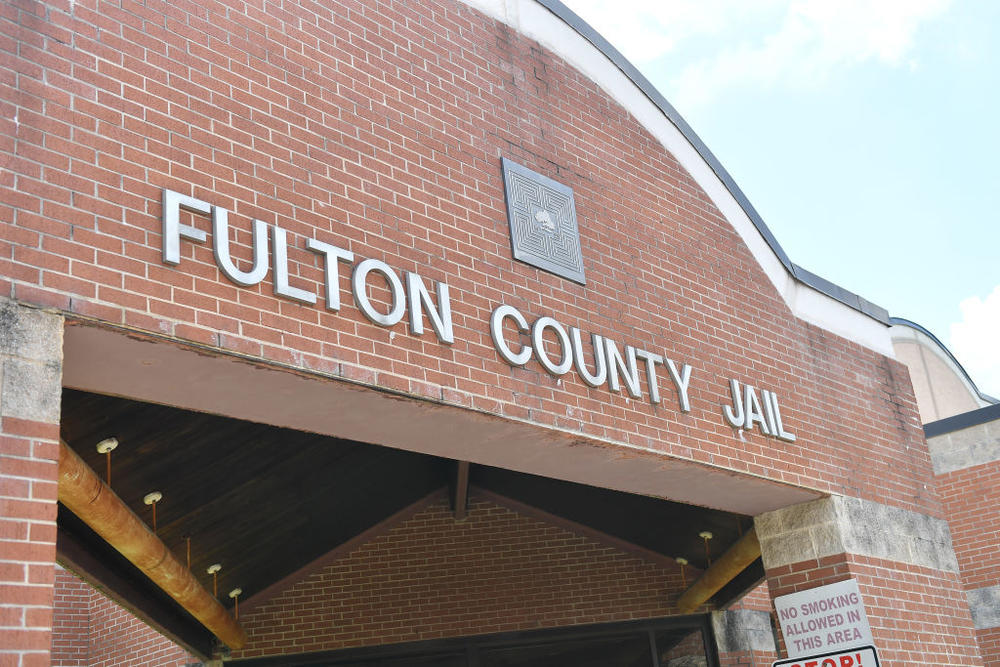
Caption
State Senators heard from experts in an effort to understand problems in the Fulton County Jail
Credit: @BlackAmericaWeb via Twitter
LISTEN: Criminal justice experts and officials from the Fulton County Sheriff’s office testified before state senators at the Capitol. GPB's Sarah Kallis reports.

State Senators heard from experts in an effort to understand problems in the Fulton County Jail
Criminal justice experts and officials from the Fulton County Sheriff’s office testified before state senators at the Capitol in a meeting to investigate issues that plague the Fulton County Jail. Ten people have died in the jail this year.
Amelia Joiner, chief counsel to Fulton County Sheriff Pat Labat, said the jail is understaffed and overcrowded. The jail was originally constructed to hold 1,100 people, but often holds more after single cells were converted to bunk beds.
"The main jail, our Rice Street facility, has an operational and optimal operational capacity of 2,254," she said. "However, currently, as we sit here today, we have 308 beds that are inoperable because of building deterioration. That leaves us with an operational capacity of only 1,875.
"Yesterday's population was 1,928," she said, adding that the overpopulation causes wear and tear on the 33-year-old building.
Joiner also said the Fulton County Correctional Department needs more than 100 additional people for full staffing. Jail staffing goes beyond just guards. Bill Hallsworth, the Director of Jail and Courts at the Georgia Sheriff's association described jails as "mini cities."
Tate McCotter, the executive director for the National Institute for Prisons and Jails said that low staffing jails is reaching a fever pitch nationally, not just in Fulton County.
"I don't know if I've ever seen a more perfect storm right now than what's brewing in our profession of corrections," he said.
McCotter also told senators that jail staff is often not equipped to handle high rates of detainees with mental illness. He said some studies estimate up to 80% of inmates have some form of mental illness, and called county jails "the dumping ground for the mentally ill."
Many of the people inside the jail have not yet had their day in court. Detainees in the jail with mental illness often have to be deemed fit to stand trial before seeing a judge. That can be a lengthy process.
Joiner said that she believes a new building, more staff, and more funding could help remedy problems the jail faces, but that systemic problems go deeper.
"We recognize that we did not cause our population and we can't fix the systemic problems that plague the Fulton County criminal justice system," she said.
The Senate study committee will hold several more meetings about the Fulton County Jail before a issuing a report for the state’s legislative session.